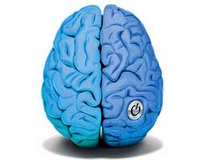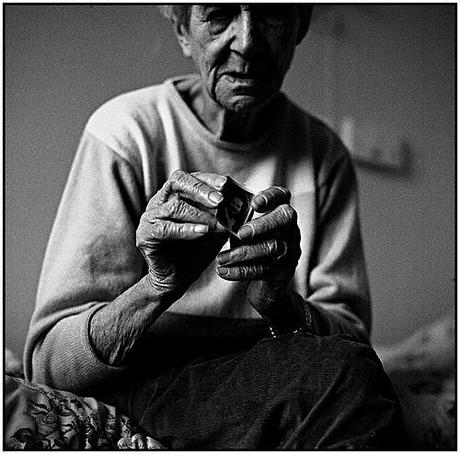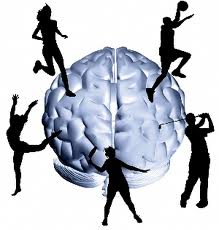 Let me start off by asking you a question, How often do you think about your brain? Seriously, I’m in no mood to joke now.
Let me start off by asking you a question, How often do you think about your brain? Seriously, I’m in no mood to joke now.
I mean I'm talking about deep thought. You know your heart is responsible for pumping blood, your stomach is responsible for digesting food, but what is your brain responsible for?
Each brain has on average 100 Billion brain cells and each one of those brain cells is connected to roughly 50,000 other brain cells.
Essentially, your brain is responsible for every last piece of you. Your brain signals your heart to pump blood, it signals your arms to move, it even creates images with the information your eyes take in. Every memory you have is stored in your brain.
In fact, your personality is a byproduct of your unique arrangement of over 6 quadrillion synaptic connections that occur between your brain cells. Are you beginning to understand why mental health is so important?
Like Cars, Brains Break Down Too!
The sad truth is eventually; your brain will begin to degrade. It will lose memories, process information slower, and in many cases completely malfunction. The most common malfunction associated with aging is Alzheimer's disease.
Alzheimer's affects 10% of those over the age of 65 and 50% of those over 85. If you get Alzheimer's, you will lose all your memories, and your personality will change dramatically. Many people in the late stages of Alzheimer's can't dress themselves or can’t even speak proper English!
Wouldn't you do what you could to keep yourself from spending your last years in a confusing and frightening haze?

It is actually more frightening than it seems
Sadly, we don’t have any cure for Alzheimer's disease yet, and treatments, they are very limited. This is why you must focus on preventing yourself from suffering symptoms.
Scientists have recently discovered that there is a discrepancy between neurophathological damage caused by Alzheimer's disease, and behavioral alterations that manifest as a result of that damage{1} This is good news. It means that you can protect yourself from the symptoms. Many autopsies have discovered that people with Alzheimer's had it for years, but never showed any symptoms.
What's the difference between people who experience symptoms right away and those who go years without a single one?
It all boils down to mental health. People who have more brain cells and synaptic connections between them don't show symptoms as early as others. Furthermore, you can do a lot to boost your brain cell (neurons) and synaptic connection (synapse) count. There are three easy ways I will outline for you.

Aerobic Exercises are Best Recommended to Stay Away from most Mental Illnesses
Physical Exercise, Mental Exercise and Nootropics Are Vital For Mental Health
First, begin to jog or run. A minimum of 30 minutes, 5 days a week of aerobic exercise has been shown to increase neurogenesis in our hippocampus{2}. The hippocampus plays a vital role in memory formation and learning. It is also where new brain cells are created.
So the next time you engage in aerobic exercise, your brain stockpiles a protein called brain-derived nootropic factor (BDNF). BDNF allows your hippocampus to create brain cells at a faster rate, and improves their survivability.
Second, you must engage in mentally stimulating tasks on a regular basis. This is especially important as you age. For a task to really stimulate your brain, it must be both novel and challenging. New and challenging tasks force your brain to create new synaptic connections. Not only will you be improving your mental health, but you will also be getting smarter. One of the best things you can do to strengthen your brain is learn a new language{3}.
Finally, consider taking vitamins for your brain. The scientific term is nootropic. Uses of nootropics include improving your synaptic plasticity and building neurons more quickly. Some nootropics are natural like Lion's Mane Mushroom, while others are synthetic like aniracetam.
If you decide to take nootropics, do a lot of research first. Though, nootropics certainly are not necessary. Getting both physical and aerobic exercise is most important, nootropics are for those who want to go the extra mile.
What are your thoughts?
Maybe old age seems like a distant enigma, or maybe you are beginning to reach your golden years. Regardless, you should begin to take actions which improve mental health as soon as possible. Trust me; you don't want to spend your last days in a state of paranoia and confusion. You want to be able to reflect on your life and what it meant, which won't be possible if you are experiencing serious Alzheimer's symptoms. Share your thoughts below.
Resources
1. Katzman R, Terry R, DeTeresa R, Brown T, Davies P, Fuld P, Renbing X, Peck A (1988). Clinical, pathological, and neurochemical changes in dementia: a subgroup with preserved mental status and numerous neocortical plaques. Annals of Neurology. 23(2):138-44.
2. Exercise training increases size and hippocampus and improves memory: http://www.pnas.org/content/early/2011/01/25/1015950108.abstract
3. Science Daily, Juggling Languages Can Build Better Brains: http://www.sciencedaily.com/releases/2011/02/110218092529.htm

